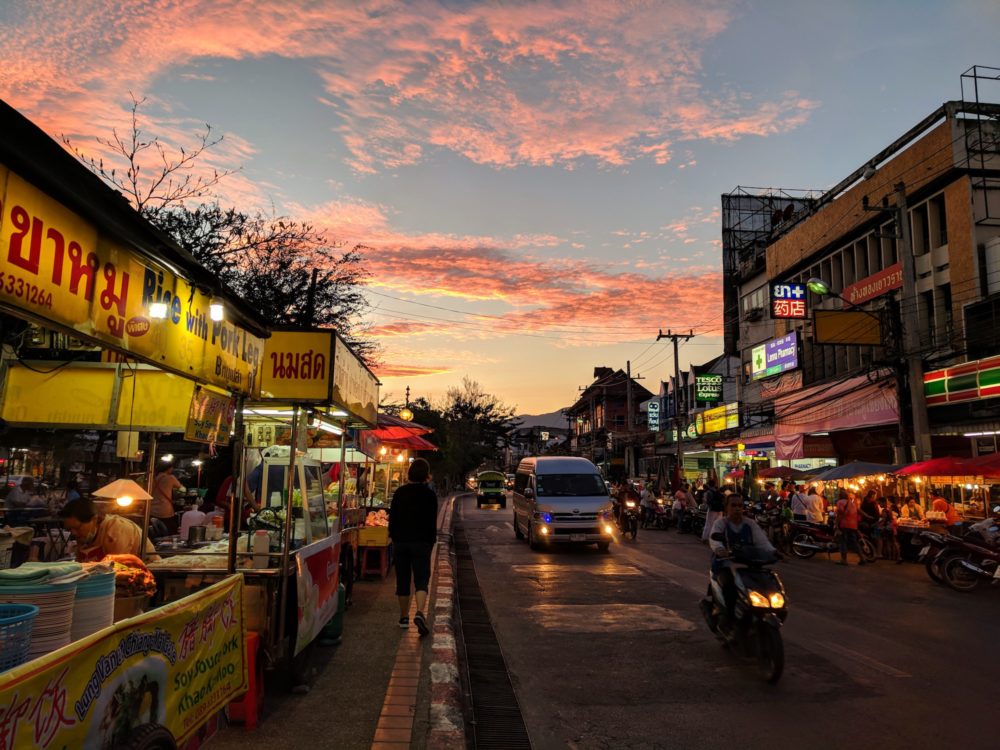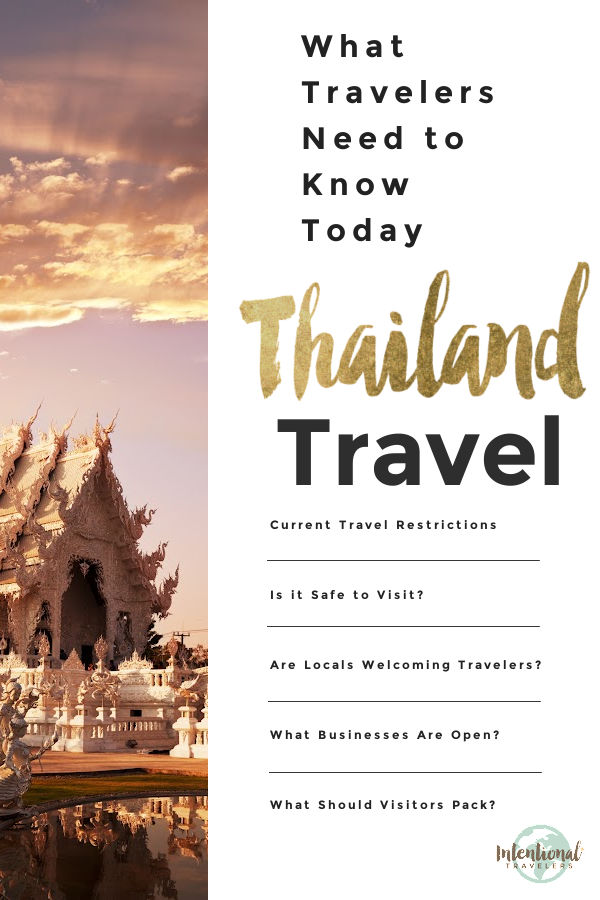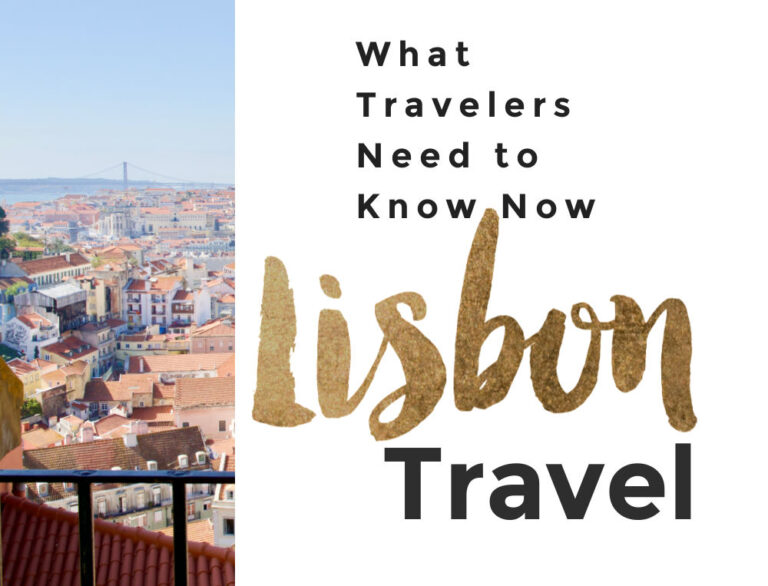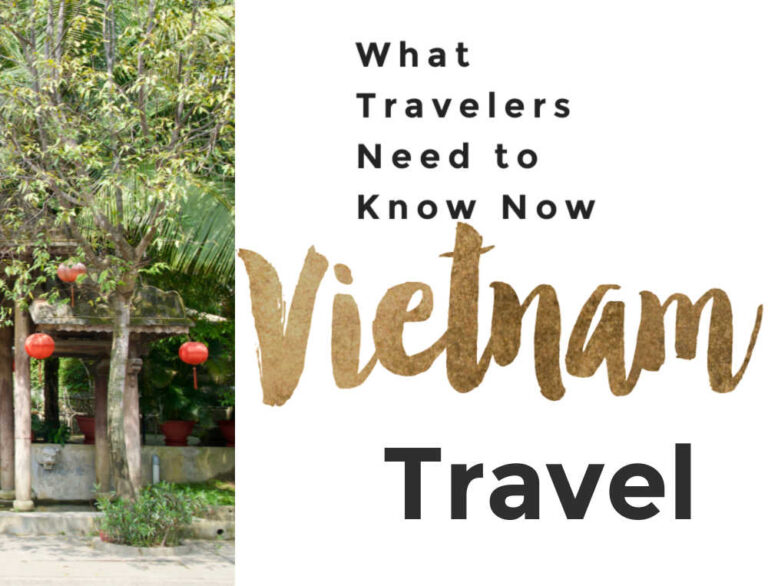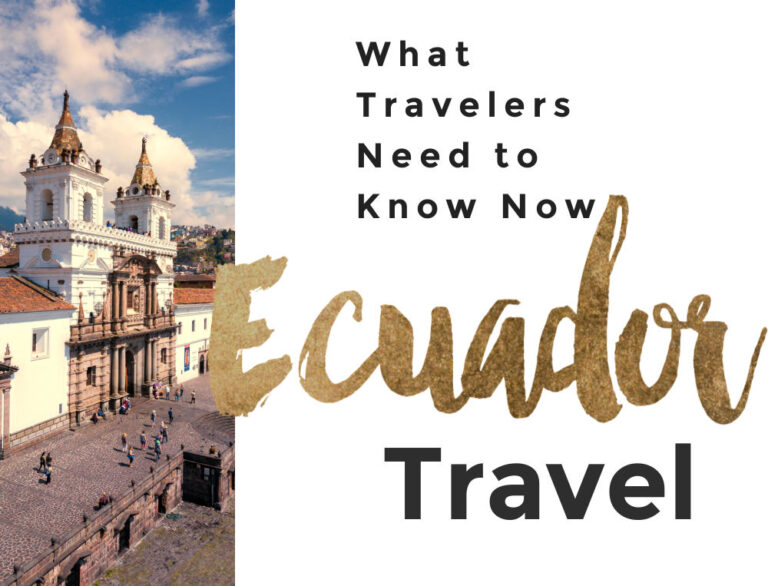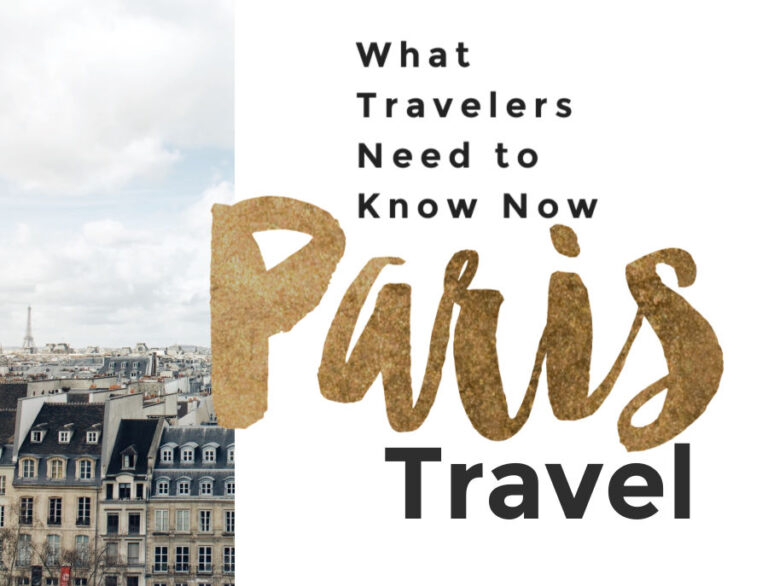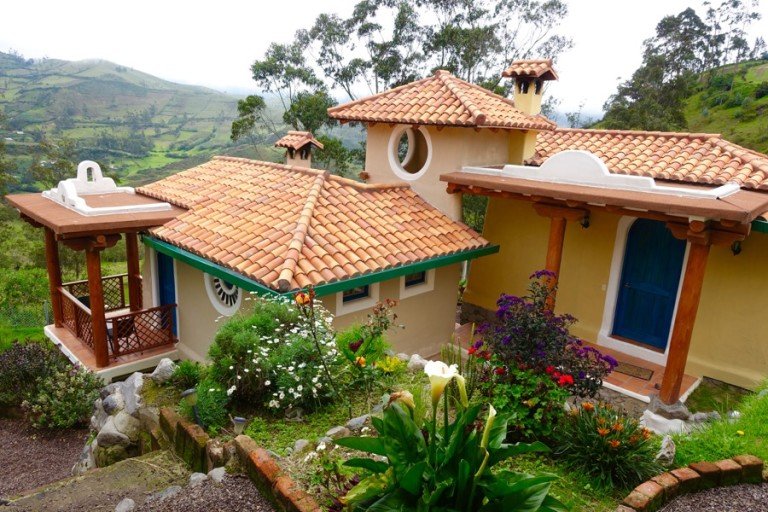Thailand travel requirements 2025: What travelers need to know
We aim to keep this post updated about Thailand travel in 2025 with official Thailand travel restrictions, requirements, and health and safety guidance. Our goal is to help you make informed decisions so you can travel confidently, safely, and responsibly in this new post-pandemic world of ours.
Since travel restrictions can vary by citizenship, we will be focusing our post on rules that affect U.S. citizens.
Last update: April 5, 2025. Originally published: November 2021.
Disclosure: This post contains some affiliate links. If you make a purchase through one of our links, we may receive a small commission, at no additional cost to you.
February 2024: “My husband and I are in Thailand for a two-month stay. There don’t seem to be any travel restrictions. Tourism is running normally, but many people still wear masks, especially in places like the metro or on ferries. Some businesses and attractions have closed since Covid.
If you have asthma or other breathing issues, watch the air quality index (The Air4Thai app works well.) and plan your trip accordingly.”
– Rachel Heller of World Heritage Net, Dutch traveler
At the end of the post, we share more on-the-ground perspectives from local residents and travelers to Thailand so you can get a sense of what to expect.
Table of Contents
Is Thailand open for travel? Can I travel to Thailand right now?
Thailand is currently open for foreign travelers.
As of October 2022, proof of vaccination or negative COVID-19 test result are no longer required from travelers. In addition, proof of vaccination is no longer required to attend crowded events.
Travelers holding US passports can enter Thailand for tourism purposes without the need to obtain a visa for stays up to 60 days on each visit. Passport must be valid for at least six months after the arrival date in Thailand. Travelers can always extend the standard 60 days for another 30 days by applying at a local Immigration Office and paying 1900 baht.
Travelers from countries not on the visa exemption list should consider the following options:
Tourist Visa: A standard visa allowing stays of up to 60 days, with the possibility of a 30-day extension.
Destination Thailand Visa (DTV): Introduced in 2025, this visa permits multiple entries over five years, with each stay lasting up to 180 days, extendable by another 180 days per entry.
It’s advisable to consult the Royal Thai Embassy or Consulate in your area for the most current visa options and requirements.
Effective May 1, 2025, all non-Thai nationals entering Thailand by air, land, or sea must complete the Thailand Digital Arrival Card (TDAC) online within 3 days before arrival. This digital card replaces the traditional TM6 form, designed to streamline entry procedures, and mandatory for all foreign travelers
In addition, starting in June 2025, all travelers entering Thailand under the visa exemption scheme will be required to obtain an Electronic Travel Authorization (ETA) prior to arrival. This online registration aims to enhance the screening and tracking of foreign visitors.
Thailand travel restrictions and limitations may sometimes apply only in certain regions. Monitor Thailand travel news here.
Quarantine rules in Thailand: What happens if I get Covid?
If a traveler tests positive for COVID-19 while in Thailand, they are advised to self-isolate. However, quarantine is no longer mandatory or enforced. Those exhibiting severe symptoms will be admitted to a hospital for treatment.
Can I travel to Thailand in April 2025? Can I travel to Thailand this Spring?
Travel to Thailand in April is open. Please read on for details and check back for updates.
What is it like to fly to Thailand BKK Suvarnabhumi Airport or DMK Don Mueang Bangkok Airport right now? Thai Airways reports that the face mask mandate has been relaxed. Airports can be busy at times and crowds may be difficult to avoid.
Do I have to quarantine when traveling to Thailand? No. See details above.
Does Thailand check COVID-19 symptoms of incoming travelers? Health checks are no longer common for incoming travelers.
Does Thailand require a negative Covid 19 test for travelers? No. As of October 2022, a negative Covid test is no longer required.
Does Thailand require a proof of Coronavirus vaccine for travelers? No. As of October 2022, a proof of vaccination is no longer required.
Do I still need to provide a negative Covid test or quarantine if I have been vaccinated? No. Travelers are no longer required to provide a negative Covid test or quarantine.
Is a booster shot required for travel to Thailand? At this time, booster shots are not required in Thailand. There is currently no expiration period set for the validity of vaccinations.
What Covid testing options are available for travelers in Thailand? PCR and antigen tests are available in Thailand. Foreign travelers can get a Covid test at the National Institute of Health, 14 Regional Medical Sciences Centers, and private hospitals in Thailand.
Covid PCR tests range from 2,500 to 10,000 Thai baht (approximately $74-$311). Test results are available within 72 hours. ATK tests are available for cheap at 711 convenience stores for 40+ baht.
See the list of Covid testing centers here.
What healthcare options are available to travelers in Thailand who get the virus? Thailand’s private healthcare services are generally very good. Hospitals and clinics in Thailand are open to foreign travelers.
Treatment for Covid-19 may cost more than 100,000 Thai baht. Travelers will pay for their medical expenses or use a travel insurance.
For travel insurance that covers Covid, check out Nomad Insurance by Safety Wing >
What service businesses and restaurants are open in Thailand? Restaurants, street food, malls, department stores, and other establishments are open in Thailand. Pubs, bars, karaoke outlets and other entertainment venues are now operating at their normal hours.
Are face masks required in Thailand? Wearing of masks is now voluntary in public and indoor places, except health care facilities. Some businesses may request face masks inside.
Are buses running in Thailand? Public transportation is available in Thailand. Masks are no longer required but still encouraged. A majority of riders still wear masks on public transit, especially in Bangkok.
Will Thailand impose new Covid restrictions? What’s next is difficult to predict. Historically, most countries impose COVID-19 restrictions when strains on the health care system might become unsustainable. Thailand has been relatively proactive when it comes to preventive Covid measures, balanced with the need to keep the tourism industry open.
How has the Coronavirus impacted Thailand?
Thailand reported its first case of Covid infection last January 2020. Although there have been outbreaks in the following months, Thailand was successful in containing the pandemic throughout most of 2020.
Unfortunately, in April 2021, the country experienced uncontrolled resurgence of infections, ranking Thailand fourth in the number of cases in Southeast Asia.
In response to the pandemic, preventive measures such as contact tracing, lockdown measures, and international travel restrictions were implemented. These slowed the country’s economy and Thailand’s tourist industry has been severely affected. Thailand’s State of Emergency ended September 30, 2022.
To revive tourism, the islands of Phuket and Samui reopened with a “Sandbox” program to vaccinated foreign travelers in July 2021. In October 2021, Thailand travel restrictions were eased for foreign travelers. In December 2021, the Test & Go program which allowed quarantine-free entry was suspended amid the spread of the Omicron variant.
In 2022, Thailand eased entry restrictions. The color-coded system, which placed limits on travel, dining, entertainment activities, and gatherings, has been removed.
Vaccinations in Thailand began at the end of February 2021. About 2/3 of the population have been vaccinated.
For the current situation in Thailand, including: total COVID-19 positive cases; total cases in Thailand; and COVID-19 testing in Thailand, please see the following Thailand Ministry of Public Health site and Facebook page.
What should you pack for safely traveling in Thailand?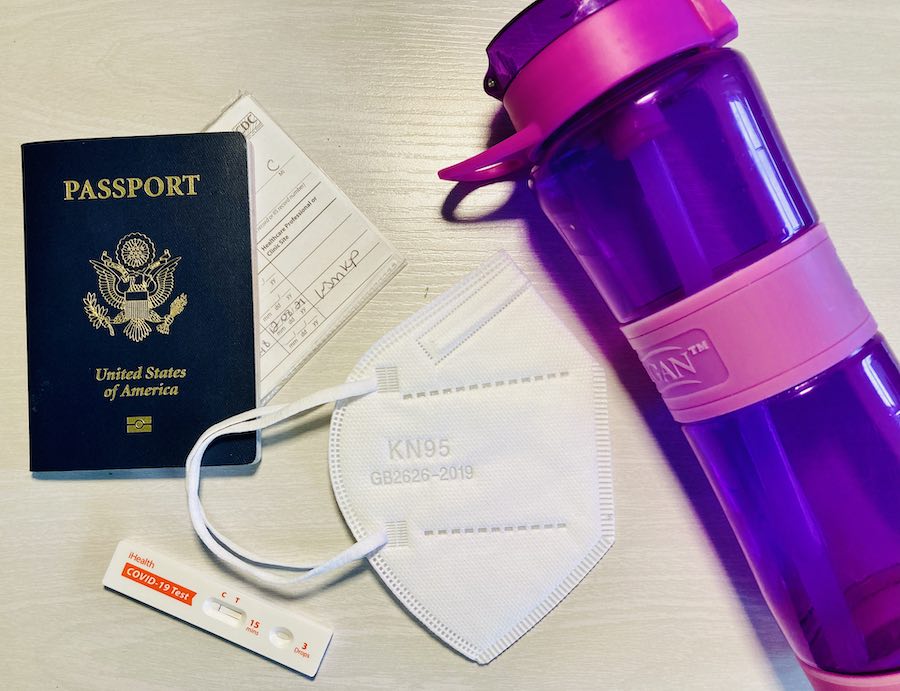
😷 Face Masks – Face coverings are recommended in crowded public places.
Find N95 masks at Bona Fide > or designer options at Vida >
💊 Medicine – Bring enough prescription and over-the-counter medication for your entire trip to avoid trips to the clinic.
💳 Vaccine Card Holder – Protect that paper CDC card when traveling abroad (if your country doesn’t offer a digital version).
Get a simple plastic protector > or Vegan leather clippable > or Leather passport + card combo holder >
👃 Covid self-test – The most studied rapid antigen self-test with FDA emergency authorization. NOT valid to enter countries. Use for your own peace of mind.
Order from CVS > or Walmart >
💧 Sealed water bottle – Make sure your reusable water bottle has a lid that’s not exposed to the air. We use one of each of the following:
Shop insulated water bottles with protective lid >
Shop water bottles with purification filter and protective lid >
✈️ Travel insurance that covers Covid – We’ve started using Nomad Insurance by Safety Wing for affordable evacuation, international medical, and trip coverage.
What do Thai locals and recent travelers say about visiting Thailand now?
What is it like to visit Thailand right now? It’s our goal to provide regular updates here from real people on the ground, to help potential visitors know what to expect. The following are subjective opinions only. Official travel guidance can be found above.
September 2023 – Peta and Jonas of Exit45 Travels, Australian travelers: “We are living a nomadic retirement and arrived in Koh Samui, Thailand, in July and are staying two months. Thailand, in general, is nearly back to pre-covid tourist numbers and you can feel an optimism in the air amongst the locals.
There are no travel restrictions here in Thailand, however, you will still see many locals wearing facemasks. Hospitals and some medical clinics are advertising Covid testing so it is accessible if required. There are certain tourist areas where you can visually see the aftermath of Covid i.e. deserted hotels that have fallen into disrepair, closed restaurants, etc., but in general, you will have no problems finding accommodation, restaurants selling great Thai food, massages, or shopping opportunities. It is now heading into the monsoon season here in Koh Samui so we have seen a huge reduction in tourists.”
May 2023 – Nat Deduck of Love and Road, Brazilian digital nomad: “I’ve been living in Phuket, Thailand for a year. Tourism in Thailand is back to normal, and apart from some Thais wearing masks, you probably won’t even remember that covid existed here. An interesting fact is that local Thais used masks way before the pandemic, so it’s a habit that got intensified after Covid.
Thailand’s tourism is in full swing. This high season (Dec-March) felt as busy as back in 2019 when we were here before Covid. Attractions, hotels, and places to visit are fully open and ready to service tourists.
Most tourists don’t wear masks, but if you feel the need to do so it’s available in every pharmacy, supermarket, and convenience shop. The same for the Covid tests, you can do it by yourself, or you can go to any clinic or hospital to do a PCR test if needed. Hospitals are back to regular services here in Phuket and Bangkok, my husband and I had to see a doctor and everything went smoothly. There was no restriction to be treated because of the pandemic, and no overflow covid cases.”
February 2023 – Michelle, Intentional Travelers, U.S. nomad: “We flew to Bangkok from Vietnam. Air Asia did not check our onward flight nor ask for any Covid documentation, only passports. Masking on the plane was not required but many wore face coverings, including all the crew.
Immigration wasn’t too long a wait at DMK in the evening. Just showed passport, boarding pass, took a photo, and fingerprints. At the moment, U.S. passports get 45 days in Thailand without a visa.
We later flew from Bangkok to Chiang Rai, took a bus from Chiang Rai to Chiang Mai, and flew out of Chiang Mai to Vietnam. Thai airports were playing recorded announcements advising passengers to mask and socially distance, though it wasn’t enforced.
The entire building where we stayed in Bangkok required masks in common areas. On BTS public transit, an announcement is made in English that mask laws have relaxed but face coverings are still highly encouraged. At least 90% of passengers wear masks on public transit.
In Chiang Mai and Chiang Rai, we also saw notices recommending Covid precautions at certain establishments, many had hand sanitizer available at the entrance, however, we didn’t encounter any strict requirements.
Thailand seems back to normal and getting more busy with the influx of Chinese tourists returning. Businesses are open without restrictions. A lot of people wear surgical masks outside in Thailand, but masking was common pre-pandemic as well.”
October 2022 – Babs of https://mumsonflipflops.com, Belgian tourist: “We’re travelling in Thailand with 2 small children for 2 months. Travel feels completely normal in Thailand. There are plenty of tourists and hotels are busy.
There are very few Covid rules still in place. You’ll see most Thai wearing face masks at all times, but nothing is expected or enforced. As a tourist, you don’t have to wear one. The one exception is on the Air Asia flight, you’re supposed to wear a mask there. Every store/building has a temperature scanner (hand scanning) and sanitizer that you’re expected to use. We haven’t been into contact testing etc as we’re fully vaccinated and all entry rules have been lifted for Thailand (we weren’t even asked for our vaccination proof).”
September 2022 – Steffi of BeachBumAdventure, expat in Thailand: “Tourism is slowly coming back to Thailand and the locals are really keen for tourists to return.
In Bangkok you will still find many Thais wearing masks, even outdoors, although this is no longer a government requirement. On public transport most people are still wearing masks on trains and minivans and buses. In other areas of the country and on the islands, you rarely see people wearing masks.
Many hotels and restaurants are welcoming visitors although some ferry schedules are still reduced due to the low number of visitors. On quieter, less touristy islands some restaurants and shops still remain closed.
Healthcare in Thailand is very efficient if you attend a private hospital, therefore I recommend making sure your health insurance covers this. Many 711 shops offer ATK tests very cheaply (40+ baht) although PCR tests remain expensive (2000+ baht).”
July 2022 – Tania of Slower Travels, digital nomad from New Zealand: “My partner and I lived as digital nomads in Phuket, Thailand for four months in 2022. Now is a great time to visit Phuket. Everything is a little on the quiet side with reduced tourist numbers but the locals are so welcoming and happy to see you.
When we arrived, there was extensive requirements and testing involved. By the time we left, most of these had been dropped. However, most people are still wearing masks in crowded places, giving a feeling of safety.”
May 2022 Linnae – American traveler with family: “We really lucked out with our arrival to Bangkok scheduled for May 1st. We had originally planned to undergo the Test & Go program but they suddenly lifted the testing and quarantine requirements.
Applying for a Thailand Pass online, which is essentially the entry visa, was a straight forward process where you just have to complete the application, provide your vaccination details, and upload pictures of your shot records, passport, and insurance card. We have regular American-style insurance through Aetna, so it covered whatever the minimum requirement was. I think there was an option to purchase some sort of travel health insurance through a Thai company.
It took about 5 days to receive the Thailand pass, which was just a QR code attached to an email. Once we had the Thailand pass, we never had to show any other form of insurance or Covid vaccination when we went through immigration. The hotel check-in was completely normal- no extra documentation required other than our passports.
Our daughter did not have to test on arrival. As a minor, she was able to enter unvaccinated with vaccinated parents. There was an option to add her to our Thailand Pass in the system. She received her own QR code for immigration.
EVERYONE was still masked, inside and outside (even in the pool). I was surprised to see children younger than 2 wearing masks. Outliers would have been the odd westerner. Social distancing did not seem to be a requirement at all.
Restaurants/sites seemed open as usual. Closures due to Covid may not be clear on the business website. So if someone is set on a specific excursion or destination, contact the place ahead of time to make sure it is still open.”
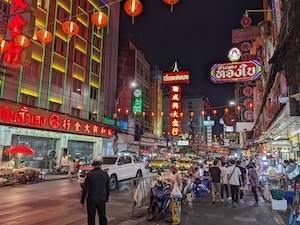
March 9, 2022 – Kristel, U.S. traveler: “My husband and I have been in Thailand since the start of 2022. In Bangkok, the typical hustle and bustle of the city feels similar to pre-covid days. Street food markets such as Chinatown is packed with both locals and foreigners while the temples are still fairly quiet depending on the time you visit.
With regards to restrictions, masks are still worn both indoors and outdoors and temperature checks are imposed when going into indoor spaces. Healthcare is easily accessible and rapid tests can be bought at a local 7-11 for very cheap. While a lot of restaurants have shut down, there are still plenty of good options and street food areas are staying busy and doing well. If visiting the islands, you can expect beautiful beaches without the crowds.”
February 11, 2022 – Abigail of I’m going on an adventure, British tourist: “My partner and I are currently travelling through Thailand for one month. We are in Phuket at the moment. Food and transport options are good with everything open and actually the area seems to have been revamped since a few years ago; its cleaner and better organised!
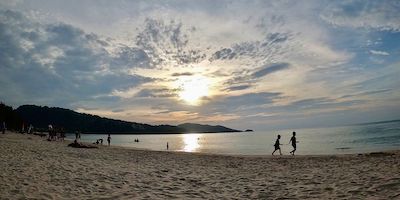
All areas are open and ready to receive guests. Face masks are still required to be worn however in the more populated tourist areas such a Patong no one seems to be using them as much. There is no contact tracing or daily testing required (except official PCR test). It’s always important to carry a face mask as some restaurants and activities will ask to have them on but in general the island so far has been very relaxed! The country still isn’t as busy as pre-covid which actually makes it an even better time to visit as it’s less crowded but there is still a nice holiday vibe.”
January 28, 2022 – Katy, American digital nomad: “During our visit to Chiang Mai, we found that most businesses and restaurants in the Old Town area are open. Some are temporarily closed or have reduced hours, but enough were open that it wasn’t a problem. Bars are technically closed. Be aware that you can’t purchase alcohol at restaurants and stores after a certain time in the Chiang Mai province, I believe it’s 9pm now (but it keeps changing).
Travel restrictions are being followed closely by locals and visitors for the most part. Mask wearing and temperature checks are required at all businesses & shops and people do follow these rules. Contact tracing is also required (by scanning an app or signing a register), but we found that most people didn’t bother with this step.
The one exception is at the Chiang Mai Sunday market. Contact tracing (along with mask wearing and temperature scans) are firmly enforced there. Most of the Chiang Mai markets and walking streets are open, except for the Saturday Walking Street (which is closed) and the Night Bazaar (which is mostly closed and not worth visiting). There were some other foreigners in Chiang Mai but not many.
The city is used to having a larger number of tourists, so it didn’t feel too crowded and we didn’t have any issues with waiting in lines or securing tickets to popular attractions. Access to healthcare is easy and affordable in Chiang Mai (at least compared to what we’re used to in the United States). Booster shots are available to anyone (including foreigners) and you can get a PCR test for travel at the Chiang Mai Ram Hospital.”
January 2022 – Zoe Adventura, Australian: “I moved to Thailand with my family in January 2022. The biggest difference between here and Australia is that everyone is expected to wear a mask all the time. Even children, and even while exercising. Most tourists don’t.
Most people seem relaxed about everything, but occasionally we hear that the hospitals are full – which is pretty scary.
Travel restrictions – there are quite a few hoops to jump through to get to Thailand. We came for the Phuket Sandbox – which meant we had to book a 7 day stay in a government approved sandbox hotel, have a specific insurance paid for, and also get RT-PCR tests before travel, plus 2 more in the first week. During this week we were free to travel around Phuket. For us, it was actually pretty seamless.
Before entering Thailand you need to get a Thaipass, which can be a bit tricky, but there is plenty of information online about what you need to do. There are facebook groups which can help with any questions, and you can apply multiple times if you need.
As far as things being closed, the tourist areas of Phuket are completely different. Patong has restrictions on nightlife and alcohol service is restricted. A lot of shops are closed and boarded up in Patong, which is sad to see. On the other side of the island which typically has less tourism, it’s much less noticeable. That being said, the hotel we are currently staying in is clearly operating on skeleton staff, with half of the rooms empty. I’ve only seen 3-5 other guests, and it is a little creepy. The staff are obviously doing the best they can but the common areas are neglected. Same story in the last hotel we stayed in. All activities are cancelled, kids club is closed etc.”
December 2, 2021 – Katy, American digital nomad, A Rambling Unicorn: “My husband and I flew from Istanbul to Phuket on Nov. 27 and then will fly to Chiang Mai on Dec. 4 when our stay in the Sandbox is complete. We have Tourist Visas and will be in Thailand for 60 days.
I arrived at the Phuket Airport in November 2021 and was amazed at the thorough measures put into place for international arrivals. All passengers were initially seated in an arrivals hall in chairs that were spaced apart for social distancing. After a check of our documents by workers covered in full PPE, we were led through 5 different stations that verified our documents and administered a PCR test on-the-spot. We were glad we had printed all of our documents out in advance – including our Thai Pass, PCR Test results and SHA+ Hotel booking. Passengers without printed copies had to print them out at a special printing station.
Thai locals take COVID very seriously. Everyone wears masks in public, even when riding open-air motor scooters. Contact tracing is managed via the MorChana app which everyone is encouraged to download. We are staying in a remote part of Phuket where some restaurants are still closed and our hotel is only half full. We haven’t encountered any lines at restaurants or crowds in this part of the island, quite the opposite actually.
Thailand is really particular about the COVID insurance. When we first applied for the COE (this was the precursor to the Thai Pass), we tried to use our World Nomads insurance and it was rejected. I’ve heard anecdotally that they only accept COVID insurance from Thai companies. I don’t know if that is true and/or if things are relaxed now that they’ve moved to the Thai Pass. When we re-applied, we bought insurance through a Thai company that specialized in Thai Pass and Tourist Visa insurance. It came with document that clearly stated COVID was covered with a coverage of 50,000 USD.”
Thailand Reopening: Phuket Sandbox Updates video published October 29 2021
See what it’s like in Phuket, with commentary from local Thai people in the tourism industry as well as recent travelers to Phuket:
Planning a trip to Thailand?
Check out our other Thailand travel resources:
– Things We Would (and Wouldn’t) Do Again in Chiang Mai, Thailand
– Bangkok Tourist Pass Review and Suggested Itineraries
– Review: Kindred Spirit Elephant Sanctuary + Hill Tribe Homestay
– Tips for Travel in Bangkok
If you have questions or updates about travel to Thailand during the Coronavirus crisis or post-pandemic, please let us know in the comments below.
~ Pin this post for later or share with friends ~
Disclaimer:
Please note, travel restrictions change frequently. Readers must take responsibility for verifying information through official sources like the State Department and CDC, in respect to their specific situations. No responsibility can be accepted by Intentional Travelers for action or inaction as a result of information provided through IntentionalTravelers.com. Any information provided here is issued as general information only.

